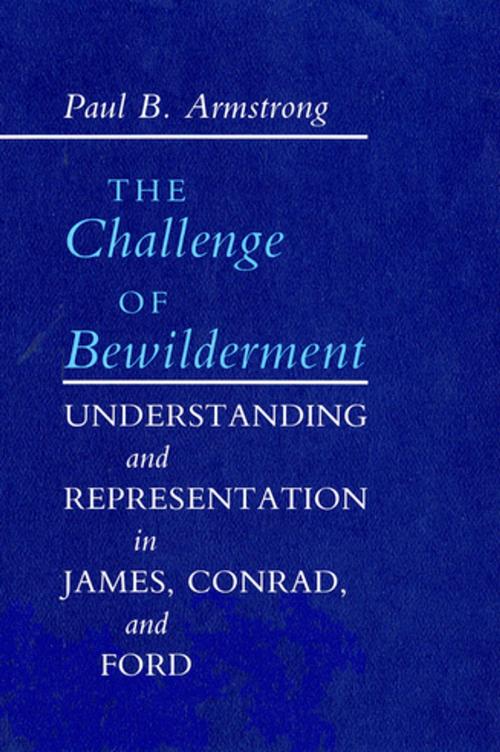The Challenge of Bewilderment
Understanding and Representation in James, Conrad, and Ford
Fiction & Literature, Literary Theory & Criticism, British, American| Author: | Paul B. Armstrong | ISBN: | 9781501722738 |
| Publisher: | Cornell University Press | Publication: | March 15, 2018 |
| Imprint: | Cornell University Press | Language: | English |
| Author: | Paul B. Armstrong |
| ISBN: | 9781501722738 |
| Publisher: | Cornell University Press |
| Publication: | March 15, 2018 |
| Imprint: | Cornell University Press |
| Language: | English |
The Challenge of Bewilderment treats the epistemology of representation in major works by Henry James, Joseph Conrad, and Ford Madox Ford, attempting to explain how the novel turned away from its traditional concern with realistic representation and toward self-consciousness about the relation between knowing and narration. Paul B. Armstrong here addresses the pivotal thematic experience of "bewilderment," an experience that challenges the reader’s very sense of reality and that shows it to have no more certainty or stability than an interpretative construct.
Through readings of The Sacred Fount and The Ambassadors by James, Lord Jim and Nostromo by Conrad, and The Good Soldier and Parade’s End by Ford, Armstrong examines how each writer dramatizes his understanding of the act of knowing. Armstrong demonstrates how the novelists’ attitudes toward the process of knowing inform experiments with representation, through which they thematize the relation between the understanding of a fictional world and everyday habits of perception. Finally, he considers how these experiments with the strategies of narration produce a heightened awareness of the process of interpretation.
The Challenge of Bewilderment treats the epistemology of representation in major works by Henry James, Joseph Conrad, and Ford Madox Ford, attempting to explain how the novel turned away from its traditional concern with realistic representation and toward self-consciousness about the relation between knowing and narration. Paul B. Armstrong here addresses the pivotal thematic experience of "bewilderment," an experience that challenges the reader’s very sense of reality and that shows it to have no more certainty or stability than an interpretative construct.
Through readings of The Sacred Fount and The Ambassadors by James, Lord Jim and Nostromo by Conrad, and The Good Soldier and Parade’s End by Ford, Armstrong examines how each writer dramatizes his understanding of the act of knowing. Armstrong demonstrates how the novelists’ attitudes toward the process of knowing inform experiments with representation, through which they thematize the relation between the understanding of a fictional world and everyday habits of perception. Finally, he considers how these experiments with the strategies of narration produce a heightened awareness of the process of interpretation.















